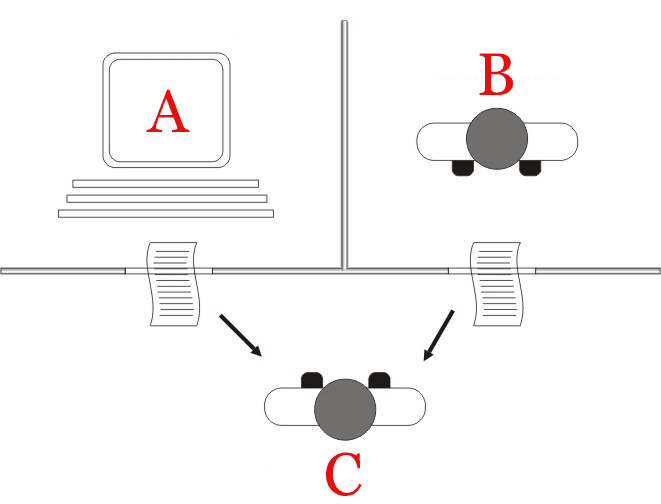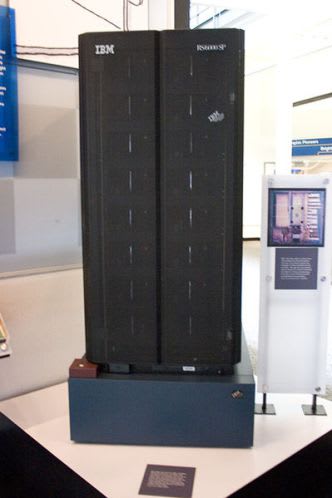First published on lasseschultebraucks.com
What is Artificial Intelligence? What has Artificial Intelligence reached in the past? What are appreciable milestones of Artificial Intelligence in the last years? What will Artificial Intelligence solve in 5 years, 20 years, 50 years or 100 years from now? And how will look Artificial Intelligence the future?
There are many question around Artificial Intelligence. We already can answer some of them and talk about what we have solved with Artificial Intelligence in the past.
On the other hand talking about future scenarios, especially if we talk about superintelligence, turns out difficult. But there are some scenarios we can think and evaluate about.
Definition of Artificial Intelligence
Artificial Intelligence is a term, which consists of two words.
Artificial
Artificial is something that is not real and which is kind of fake because it is simulated. The simplest thing what I can think of which is artificial is artificial grass. Artificial grass is not real grass, so it is kind of fake. It is used to substitute real grass for various reason. Artificial grass is often used for sports, because it is more resistant and therefore can be used longer than real grass. It is also easier to care than real grass. I am sure there are many more reason for artificial grass and against real grass. But that is not the point I want to make. The point is, that there are reasons why some things are artificial and substitute real things.
Intelligence
Intelligence is are very complex term. It can be defined in many different ways like logic, understanding, self-awareness, learning, emotional knowledge, planning, creativity and of course problem solving.
We call us, humans, intelligent, because we all do this mentioned things. We perceive our environment, learn from it and take action based on what we discovered.
The same applies to animals. The interesting point about intelligence on animals is, that there are many different species and because of that we can compare intelligence on between species.
In both cases (human intelligence and animal intelligence) we talk about natural intelligence (NI).
Next to humans and animals there has been argued about plant intelligence. Intelligence in plants shows off kind of different from humans or animals. The main reason is here because plants are not having a brain or neuronal network, but they react to their environment. Plant intelligence is a very interesting topic on its own, because plant intelligence is not instantly visible through reactions through movement or lute.
If we talk about Artificial Intelligence (AI) we refer to a subfield of Computer Science. Artificial Intelligence is acted by machines, computers and mainly software. Machines mimic, here we see why it is called artificial, some kind of cognitive function based on environment, observations, rewards and learning process.
To understand more about Artificial Intelligence we look at the history of Artificial Intelligence to see what Artificial Intelligence is capable of and how his status quo is related to the present.
History and Milestone of Artificial Intelligence
The history of Artificial Intelligence is quite interesting and started around 100 years ago.
Rossum’s Universal Robots (R.U.R.)
In 1920 the Czech writer Karel Čapek published a science fiction play named Rossumovi Univerzální Roboti (Rossum’s Universal Robots), also better known as R.U.R. The play introduced the word robot. R.U.R. deals about a factory, which creates artificial people named as robots. They differentiate from today’s term of robot. In R.U.R. robots are living creatures, who are more similar to the term of clones. The robots in R.U.R. first worked for the humans, but then there comes are robot rebellion which leads to the extinction of the human race.
The play is quite interesting, because of different reason. First it is introducing the term robot, even if represents not exactly the modern idea of robots. Next it is also telling the story of the creation of robots, so some kind of artificial intelligence, which first seems to be a positive effect to the humans, but later on the is the robot rebellion which threat the whole human race.
Artificial Intelligence in literature and movies is a big topic for its own. The example of R.U.R. should have shown the importance and influence for Artificial Intelligence on researches and society.
Alan Turing
Alan Turing was born on 23th June 1912 in London. He is widely known, because the encrypted the code of the enigma, which were used from Nazi Germany to communicate. Alan Turing’s study also led to his theory of computation, which deals about how efficient problems can be solved. His presented his idea in the model of the Turing machine, which is today still a popular term in Computer Science. The Turing machine is an abstract machine, which can ,despite the model’s simplicity, construct any algorithm’s logic. Because of discoveries in neurology, information theory and cybernetics in the same time researches and with them Alan Turing created the idea that it is possible to build an electronic brain.
Some years after the end of World War 2, Turing introduced his widely known Turing Test, which was an attempt to define machines intelligent. The idea behind the test was that are machine (e.g. a computer) is then called intelligent, if a machine (A) and a person (B) communicate through natural language and a second person (C), a so-called elevator, can not detect which of the communicators (A or B) is the machine.
The Dartmouth conference
In 1956 there was probably the first workshop of Artificial Intelligence and with it the field of AI research was born. Researcher from Carnegie Mellon University (CMU), Massachusetts Institute of Technology (MIT) and employee from IBM met together and founded the AI research. In the following years they made huge process. Nearly everybody was very optimistic.
Machines will be capable, within twenty years, of doing any work what man can do.” – Herbert A. Simon (CMU)
“Within a generation … the problem of creating ‘artificer intelligence’ will substantially be solved” – Marvin Minsky (MIT)
That was in the 1960s. The progress slowed down in the following years. Because of the failing recognizing of the difficulty of the tasks promises were broken.
The first AI Winter
Because of the over optimistic settings and the not occurred breakthroughs U.S. and British government cut of exploratory research in AI. The following years were called (first) AI Winter. The enthusiasm was lost, nobody wanted to fund AI research. The interest of publicity on Artificial Intelligence decreased. This was around 1974.
Expert Systems
After the first AI Winter, Artificial Intelligence came back in a form of so-called “expert systems”.
Expert systems are programs that answer question and solve problems in a specific domain. They emulate an expert in a specific branch and solve problems by rules. There are two types of engines in expert systems: First, there is the knowledge engine, which represents facts and rules about a specific topic. Second, there is the inference engine, which applies the rules and facts from the knowledge engine to new facts.
Synthesis of Integral Design
In 1981 an expert system named SID (Synthesis of Integral Design) designed 93% of the VAX 9000 CPU logic gates. The SID system was existing out of 1,000 hand-written-rules. The final design of the CPU took 3 hours to calculate and outperformed in many ways the human experts. As an example, the SID produced a faster 64-bit adder than the manually designed one. Also the bug per gate rate, which where around 1 bug per 200 gates from human experts, was much lower at around 1 bug per 20,000 gates at the final result of the SID system.
The second AI Winter
The second AI Winter came in the later 80s and early 90s after a series of financial setbacks. The fall of expert systems and hardware companies who suffered through desktop computers built by Apple and IBM led again to decreasing AI interest, on the one hand side from publicity and on the other side from investors.
Deep Blue
After many ups and downs Deep Blue became the first chess computer to beat a world chess champions, Garry Kasparov. On 11 May 1997 IBM’s chess computer defeated Garry Kasparov after six games with 3½–2½.
Deep Blue used tree search to calculate up to a maximum of 20 possible moves. It evaluated positions by a value function mainly written by hand, which was later optimized by analyzing thousand of games. Deep Blue also contained an opening and endgame library of many grandmaster games.
In 1997 DeepBlue was the 259th most powerful supercomputer with 11.38 GFLOPS. In comprising: The most powerful supercomputer in 1997 had 1,068 GFLOPS and today (December 2017) the most powerful supercomputer has 93,015 GFLOPS.
FLOPS stand for floating-point operations per second and the ‘G’ in GFLOPS stands for Giga. So the equivalent of 1 GFLOPS are 10⁹ FLOPS.
21st Century: Deep learning, Big Data and Artificial General Intelligence
In the last two decades, Artificial intelligence grow heavily. The AI market (hardware and software) has reached $8 billion in 2017 and the research firm IDC (International Data Corporation) predicts that the market will be $47 billion by 2020.
This all is possible through Big data, faster computers and advancements in machine learning techniques in the last years.
With the usage of Neural Networks complicated tasks like video processing, text analysis and speech recognition can be tackled now and the solutions which are already existing will become better in the next years.
Atari Games
In 2013 DeepMind, one of the world’s foremost AI research, introduced an AI which could play a couple of Atari games on top of a level of human players. This first seems not very expressive, but they just used reinforcement learning and neural networks to let the AI self learn these games. Also they just used the pixels as an input to the agent, so there was no direct reward score given to the agent depending on the moves he did.
In 2015 they further introduced a smarter agent, who successfully played 49 classic Atari games by itself.
Next to classic games from old retro consoles DeepMind is developing an AI for more complex game, like e.g. Starcraft 2. Starcraft 2 is a Real Time Strategy (RTS) game, which is the most popular 1 vs.1 E-Sport title. Starcraft 2 is very popular in South Korea and the best Starcraft 2 pro player come from South Korea. Nevertheless there are many European and North American pro player who play for living. Starcraft 2 is a much more complex game than classic video games: There are much more possible actions you can do, you do not know everything about your opponent and you have to scout him to explore what he is doing. In Starcraft 2 there are also dozens of strategy decision to choose from every minute and in general much more to care about comparing to classic video games.
The current AI is not very good at the moment and it only can play mini games like building units. About the Starcraft 2 AI I am very exciting about, because I am a big Starcraft 2 fan and I am exciting about how the AI will change the Starcraft 2 meta game and what new tactics it will explore.
AlphaGo
Next to classic Atari games, DeepMind also managed to defeat the world best human Go player with his AI AlphaGo. In October 2015 they first defeated the European Go champion Fan Hui five to zero. After the match there was a lot of skeptics in the Go scene about AlphaGo, because Fan Hui is ‘only’ an 2-dan (out of 9-dan, which is best) European Champion. Therefore the DeepMind team flew to South Korean to face Lee Sedol, a 9-dan Go Player. Lee Sedol is known as one of the best Go players in the world. After DeepMind managed to win the first 3 matches Lee Sedol seemed very desperate. But in the fourth game AlphaGo lost after it made an obvious mistake. In the last match AlphaGo could win again. In the end AlphaGo managed to win with 4-1 against Lee Sedol.
If you are more interested in the story about AlphaGo I recommend the movie about it. In my opinion the movie is great and shows, next to the technical impact of the AI, the impact on the Go community.
In 2017 DeepMind published the next generation of AlphaGo. AlphaGo Zero is build up on reduced hardware and just learned Go to play against itself. After three days of training AlphaGo Zero was stronger than the version of AlphaGo who defeated Lee Sedol and won against his younger version with 100-0. After 40 days of training it also defeated his former version of AlphaGo Zero.
What is coming next?
Well nobody knows and I also do not know.
This answer is probably very unsatisfying, therefore let’s talk about possible scenarios.
Artificial General Intelligence, Superintelligence – AI takeover?
Until now there has been also some Artificial Intelligence systems who were specialists, e.g. AlphaGo (Zero), who has mastered Go and could outperform human Grandmaster player. But there is no Artificial General Intelligence (AGI) yet. AGI refers to an Artificial Intelligence, who could successfully perform any intellectual task that a human being can. The Turing test is one example to test if an AI is an AGI.
Superintelligence takes AGI to the next stage. superintelligence refers to an AGI, who is smarter than a human and can outperform a human in any intellectual task that a human being can.
The question, when there will be AGI and when there will be superintelligence, is of course difficult to answer (as nearly all answers who refers to future prediction). Nick Bostrom, who is a AI research on Oxford University, evaluates this question in a paper.
The AI takeover refers to the scenario, that a superintelligence will take over the world and will fight against the human race. It is a popular science fiction theme and it is started to use 100 years ago in R.U.R. and still being used in more modern movies like Terminator or Matrix. So is it only fiction or is it possible, that AI can take over the world one day?
I am not 100% sure about it. I favor more the opinion about that there will no AI takeover. But there are also many people like Elon Musk, Stephen Hawking and Bill Gates who are concerned about possible the possibilities of AI. Therefore I think we should not call AI takeover as a pure fiction scenario, we should be aware of it and act responsible.
If you are interested in the topic of AGI and Superintelligence, I recommend you the read the book by Nick Bostrom “Superintelligence – Path, Dangers, Strategies”.
Conclusion
There are already Artificial Intelligence systems who can outperform humans in specifics areas, like e.g. playing GO or data analysis. Today, if we talk about Artificial Intelligence systems in production we refer to specialists. But there in no Artificial General Intelligence (AGI) yet, who can perform like a human, and neither there is a superintelligence, who is smarter than a human being.










Top comments (19)
Very nice article.
I need to rectify this fragment about Alan Turing:
I agree that he is one of creators of present Computer Science, but early Enigma cipher has been broken by Marian Rejewski. Alan Turing was strongly based on results made be Rejewski and their colleagues( Jerzy Rozycki, Henryk Zygalski).
About Enigma in Wikipedia
As a Pole I have to mention about this.
Once again great post.
Ahh, yes you you have right here. I did not know this. Thank you!
No problem. I'm aware that this isn't well known fact so I've added my comment.
Thanks!
Interesting read. I would like to add a few points:
Artificial means "made by humans/not occuring naturally". It's not fake, it exists, it's real. :)
One of the big thing with AI, as you mentioned, is that we're not sure what is "intelligence" exactly. And with every AI breaktrhough, the definition of intelligence shrinks, because if a machine can do it, then it's not really intelligent. Because of computers, we knew doing arithmetics doesn't need intelligence. But chess, chess need planification, strategy, mind game... Of course winning at chess recquires true human intelligence. Then Deep Blue happens, and chess becomes a difficult game but not that intelligent, just a game with a huge combinatorial state space. No, true intelligence must happen when there's hidden information, when intuition is needed, it's being able to adapt and perform well at different tasks... Until a machine does better than us at this. It's endless! And I think it's partly due to people thinking "artificial" means "kind of fake", this way it can never be truly intelligent.
About AGI and superintelligence, if we ever build a machine capable of one of these, it will take years (at least!) to be certain that we've actually achieved this. There are still debates about intelligence in animals, and they're closer to us than machines. How are we going to be sure we're not confusing intelligence with fast computation + clever programming + antropomorphic bias?
Thank you for reading! Great points Jérémy!
I agree with you in the point, that the definition of Intelligence and therefore also of Artificial Intelligence is really difficult and it is still being evaluating by experts. It seems like a steady process.
I think the problem here is, that there are many branches, medicine, biology, philosophy and also computer science who all are trying to find a definition for intelligence. Intelligence is not only part of one branch, it is part of many branches. Therefore it is very difficult to find a definition which makes everybody happy.
About AGI and superintelligence:
If I would have to say when there would be AGI and superintelligence I would say at least 40 years. But I actually don't know ;)
Again, I think Nick Bostrom's book 'Superintelligence - Paths, Dangers, Strategies' is one if not the greatest book about this topic. I encourage everybody who are interested in this topic to read it!
About the definition of Artificial:
I still think that Artificial is (kind of) fake. Of course it exists, but it is not real, because then it would be just a clone of something. And if we are building something artificial, we are not just cloning something. Real grass would be grass that would grow, but artificial grass is fake grass, which intention is to substitute real grass to improve it behavior.
Intelligence is not very well defined term. The more interesting question whether human brain or consciousness really has intelligence ? Does this level intelligence achievable by combination of complex neural networks?
Indeed, Intelligence is a very complex and interesting topic. I tried to explain it as simple as possible. I just wanted to point out, that it can be defined in many different ways like logic, understanding, self-awareness, learning, emotional knowledge, planning, creativity and problem solving. Further I wanted to make clear, that there is not only Human Intelligence, but Animals, Plants have different levels of intelligence.
Artificial Intelligence (AI) has a rich and multifaceted history, spanning over many decades of scientific exploration and technological advancement. Here's a concise overview:
Origins (1950s-1960s):
The birth of AI can be traced back to the 1950s, with the work of pioneers like Alan Turing, who proposed the Turing Test as a measure of a machine's intelligence.
In 1956, the Dartmouth Conference marked the official beginning of AI as a field, led by John McCarthy, Marvin Minsky, Allen Newell, and Herbert Simon.
Early AI research focused on symbolic reasoning and problem-solving, leading to the development of programs like the Logic Theorist and the General Problem Solver.
AI Winter (1970s-1980s):
Despite initial enthusiasm, progress in AI slowed down during the 1970s and 1980s, leading to what's known as the "AI winter."
Challenges such as limited computational power, inadequate algorithms, and unrealistic expectations contributed to this slowdown.
Expert Systems and Knowledge Representation (1980s):
During the AI winter, interest shifted towards expert systems, which aimed to capture human expertise in narrow domains.
Expert systems utilized knowledge representation techniques to encode information in a format understandable by computers.
Neural Networks Resurgence (Late 1980s-1990s):
The late 1980s saw a resurgence of interest in neural networks, fueled by advances in computational capabilities and new Ai learning algorithms like backpropagation.
This period witnessed the development of applications such as handwriting recognition and speech recognition, showcasing the potential of neural networks.
Machine Learning and Data-Driven Approaches (2000s-Present):
The 2000s witnessed a shift towards data-driven approaches, with machine learning algorithms becoming increasingly prominent.
Breakthroughs in areas like deep learning, reinforcement learning, and natural language processing have revolutionized AI applications in fields such as healthcare, finance, and autonomous vehicles.
Ethical and Societal Implications (Present):
As AI technologies become more pervasive, concerns about ethical considerations, bias in algorithms, job displacement, and privacy have come to the forefront.
Efforts to address these challenges include the development of ethical guidelines, regulatory frameworks, and interdisciplinary research collaborations.
Future Outlook:
The future of AI promises continued innovation and integration into various aspects of society, with advancements expected in areas such as human-AI collaboration, explainable AI, and AI safety.
Throughout its history, AI has evolved from theoretical concepts to practical applications, profoundly impacting industries and reshaping the way we live and work. As researchers and engineers continue to push the boundaries of what's possible, the journey of artificial intelligence remains an ongoing and fascinating exploration.
Great post. :)
Thank you :)
Amazing read
Very well written! Congrats!
Wonderful piece
Thank you!
Exciting news for all tech enthusiasts! Hyperdust is gearing up to revolutionize the scene with its innovative platform. Get ready for decentralized rendering and soon-to-come artificial intelligence functionalities that will take your experience to the next level. Plus, with support for both single-chain and multi-chain setups, Hyperdust is paving the way for a seamless integration into AAA games, AI projects, the metaverse, and Web3 applications. Check out more about Hyperdust at their website: hyperdust.io/
Great article!
What do you think about the 2001 movie A.I. Artificial Intelligence, directed by Steven Spielberg?
Thank you :)
I actually have not watched the movie yet, but I think I have to check it out now.
Really amazing Article. Thanks for sharing this.
Some comments may only be visible to logged-in visitors. Sign in to view all comments.